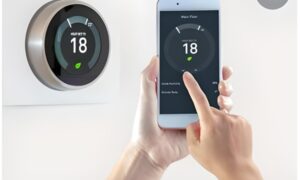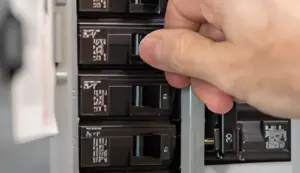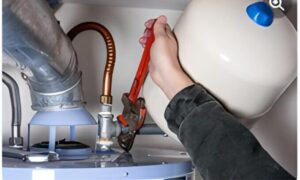Are you tired of high energy bills and the negative environmental impact of inefficient HVAC systems? If so, it's time to unleash massive energy savings today.
Upgrading your HVAC equipment can significantly reduce energy usage and operational costs. But how do you determine the potential savings and make informed decisions? By understanding ratings such as SEER and AFUE, you can compare the efficiency of different systems and estimate your energy savings.
However, selecting the right equipment is only the beginning. To truly maximize energy savings, you need to know how to calculate them accurately and implement effective strategies.
So, let's explore the importance of upgrading HVAC equipment, the role of SEER and AFUE ratings, and the tips for maximizing energy savings with your HVAC system. Don't miss out on the opportunity to unleash massive energy savings today.
The Importance of Upgrading HVAC Equipment
Upgrading HVAC equipment is crucial for maximizing energy efficiency and reducing operational costs. Over time, HVAC equipment loses efficiency, leading to spikes in energy bills due to older, inefficient equipment. By investing in energy-efficient equipment, businesses can significantly reduce their energy usage.
However, it is important to justify the upfront expense of new equipment by considering the potential energy savings. The choice of equipment also plays a significant role in determining the amount of savings. For air conditioners, energy efficiency is measured using the Seasonal Energy Efficiency Ratio (SEER), with higher SEER ratings indicating better efficiency. Heating systems, on the other hand, are assessed using the Annual Fuel Utilization Efficiency (AFUE), where higher ratings indicate better fuel efficiency.
Understanding SEER and AFUE Ratings
SEER and AFUE ratings are important metrics used to assess the energy efficiency of HVAC equipment.
SEER, or Seasonal Energy Efficiency Ratio, measures the energy efficiency of air conditioners. Ratings range from 13 (minimum requirement) to 28 or higher for central AC systems, with heat pumps and ductless mini-split systems potentially having ratings of 30 or higher.
On the other hand, AFUE, or Annual Fuel Utilization Efficiency, measures the energy efficiency of heating systems. New high-efficiency gas furnaces can have AFUE ratings as high as 98 percent, while the minimum requirement for new systems in the northern part of the country is 90 percent.
Understanding these ratings is crucial in selecting HVAC equipment that can provide optimal energy savings and reduce electricity or fuel usage.
How to Calculate HVAC Energy Savings
To accurately calculate HVAC energy savings, it is essential to consider factors such as capacity, electricity cost, and the SEER ratings of both existing and new units.
Capacity, measured in BTUs, represents the amount of heat the unit can remove from the air in an hour.
SEER ratings indicate the energy efficiency of air conditioners, with higher ratings indicating lower electricity usage.
To calculate energy savings for new AC systems, you will need the capacity, electricity cost, and SEER ratings of both the existing and new units.
ServiceTitan offers an online calculator that can help estimate energy savings over 5, 10, and 15 years.
It is important to note that optimal energy savings require properly sized, installed, and regularly maintained systems.
Working with a trusted professional and conducting regular maintenance can help ensure expected energy savings.
Tips for Maximizing Energy Savings With HVAC Systems
Maximizing energy savings with HVAC systems requires implementing effective strategies and practices. Here are some tips to help you maximize energy savings with your HVAC system:
- Regular Maintenance: Schedule regular maintenance for your HVAC system to ensure it is running efficiently. This includes cleaning or replacing air filters, checking refrigerant levels, and inspecting ductwork for leaks.
- Programmable Thermostat: Install a programmable thermostat to control the temperature settings in your home or commercial space. This allows you to set different temperatures for different times of the day, reducing energy usage when the space is unoccupied.
- Proper Insulation: Ensure your home or building has proper insulation to prevent heat loss or gain. Insulate walls, windows, doors, and attics to reduce the workload on your HVAC system.
- Airflow Optimization: Ensure that air vents and registers are not blocked by furniture or other objects. This allows for proper airflow and efficient cooling or heating.
- Zoning Systems: Consider installing zoning systems to control the temperature in different areas independently. This enables you to only heat or cool occupied areas, saving energy.
The Role of Professional Maintenance in Achieving Energy Efficiency
Proper maintenance by trained professionals is essential for achieving optimal energy efficiency with HVAC systems. Regular maintenance helps ensure that the system operates at peak performance, minimizing energy waste and reducing utility costs.
Trained professionals can identify and address issues that may impact efficiency, such as dirty filters, leaky ducts, or malfunctioning components. They can also perform tasks like cleaning coils, lubricating moving parts, and checking refrigerant levels, which can improve the system's efficiency and extend its lifespan.
Additionally, professional maintenance can help prevent breakdowns and costly repairs, as well as ensure that the system meets manufacturer's specifications.
Frequently Asked Questions
What Are Some Common Signs That Indicate It's Time to Upgrade Your HVAC Equipment?
Common signs that indicate it's time to upgrade HVAC equipment include decreased energy efficiency, frequent breakdowns, uneven heating or cooling, and rising energy bills. Upgrading to energy-efficient equipment can result in significant energy savings.
Are There Any Financial Incentives or Rebates Available for Upgrading to Energy-Efficient HVAC Equipment?
Yes, there are financial incentives and rebates available for upgrading to energy-efficient HVAC equipment. These incentives vary by location and may include tax credits, utility rebates, and financing options. It is advisable to research and consult with local authorities and HVAC professionals to determine the available incentives.
Can I Upgrade Only Certain Components of My HVAC System, or Do I Need to Replace the Entire System?
Yes, it is possible to upgrade certain components of your HVAC system without replacing the entire system. However, it is important to consult with a professional to determine the compatibility and efficiency of the new components.
How Long Does It Typically Take to Recoup the Upfront Cost of Investing in Energy-Efficient HVAC Equipment Through Energy Savings?
The time it takes to recoup the upfront cost of investing in energy-efficient HVAC equipment through energy savings varies depending on factors such as equipment efficiency, usage patterns, and energy costs.
Are There Any Additional Steps I Can Take to Further Reduce Energy Usage and Maximize Energy Savings With My HVAC System, Beyond Just Upgrading the Equipment?
To further reduce energy usage and maximize energy savings with your HVAC system, beyond upgrading the equipment, consider implementing energy-saving practices such as improving insulation, sealing ducts, using programmable thermostats, and regular maintenance to ensure optimal performance and efficiency.
Conclusion
In conclusion, businesses can achieve significant energy savings and improve sustainability by investing in energy-efficient HVAC equipment. Understanding ratings such as SEER and AFUE can help in selecting the right equipment for maximum efficiency.
Utilizing online calculators can estimate potential energy savings, aiding in informed decision-making. Additionally, working with trusted professionals for equipment selection, installation, and maintenance ensures optimal energy savings and system performance.
By prioritizing energy efficiency, businesses can reduce operational costs and minimize their environmental impact.







